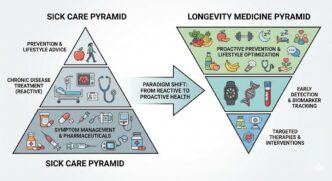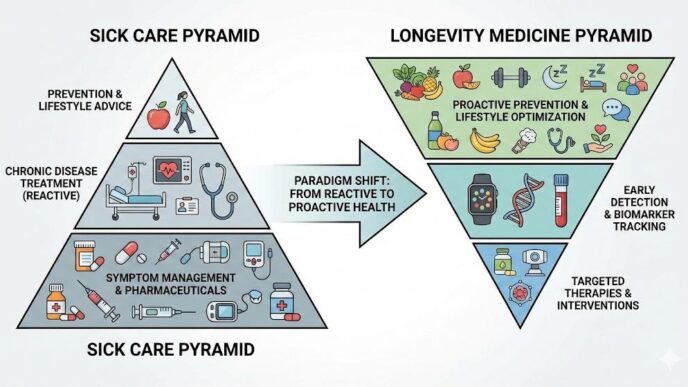Have you ever felt like your job was slowly draining the life out of you? Like something just wasn’t right, even if you couldn’t quite put your finger on it? It’s a tough spot to be in, and sometimes, the problem isn’t you – it’s the environment. Knowing the signs of a bad workplace can help you figure out what’s going on and decide what to do next. Let’s look at 7 signs of a toxic work environment that you really need to know.
Key Takeaways
- Trust your gut feelings about your workplace. If something feels off, it probably is.
- Look for patterns, not just one-off bad days. Consistent issues point to a toxic environment.
- Your well-being matters. A job shouldn’t make you feel constantly stressed or unhappy.
- Don’t be afraid to talk to trusted friends or family about what you’re experiencing.
- Knowing these signs can help you decide if it’s time to look for a healthier place to work.
1. High Employee Turnover
Okay, so picture this: you walk into a company, and it feels like every few weeks, there’s a new face. People are constantly leaving, and it’s not just the interns. That’s a HUGE red flag. High employee turnover is often a telltale sign of a toxic work environment. It’s like the canary in the coal mine – people are leaving for a reason, and it’s usually not because they won the lottery.
Think about it. Why would people keep jumping ship? It could be anything from terrible management to a lack of growth opportunities, or just a generally unpleasant atmosphere. Whatever the reason, it’s costing the company money and creating instability. Plus, it puts extra pressure on the remaining employees, who have to pick up the slack. It’s a vicious cycle.
Here’s what I’ve noticed in places with high turnover:
- Constant Training: New hires need training, which takes time and resources away from existing employees. It’s exhausting to constantly onboard people.
- Low Morale: When people are always leaving, it creates a sense of unease and uncertainty. Nobody wants to work in a place where they feel like they’re just waiting for their turn to leave.
- Lack of Team Cohesion: It’s hard to build strong teams when people are constantly coming and going. You never really get a chance to bond and develop trust with your colleagues. This can lead to toxic work culture.
It’s not always obvious at first, but if you start noticing a revolving door of employees, it’s time to ask some serious questions. Is this a place where you can really thrive, or are you just signing up for a stressful, short-term gig?
2. Abusive Management
Abusive management is a huge red flag. It’s more than just being a tough boss; it’s about creating a work environment where employees feel threatened, demeaned, or exploited. It can be subtle or overt, but the impact is always damaging. It’s important to recognize the signs so you can protect yourself and your career. It’s not always easy to spot right away, but the effects on morale and productivity are usually pretty clear.
Passive-Aggressive Behavior
This one is tricky because it’s often subtle. It’s the kind of behavior that, on its own, might seem like a minor quirk, but when it becomes a pattern, it can really undermine the workplace. Diagnosing passive-aggressive behavior is challenging due to its subtle and indirect nature. Think of it as someone who agrees to help with a project but then "forgets" to do their part, or someone who constantly makes sarcastic remarks disguised as jokes. This kind of behavior can lead to:
- Decreased productivity: Colleagues struggle to concentrate because of tension.
- Poor morale: A toxic atmosphere leads to low job satisfaction.
- Communication breakdown: Avoidance of open communication hampers teamwork.
Excessive Control: A Stranglehold on Autonomy
Imagine a workplace where every move you make is scrutinized. Your autonomy, the very essence of your professional independence, is stripped away. Management might dictate precisely how you should perform tasks, leaving no room for innovation. They might demand exhaustive progress reports or require constant check-ins to ensure you’re adhering to their vision. In such an environment, employees become mere cogs in a machine. It’s like they don’t trust you to do your job, which is incredibly demoralizing. This AI in HR for performance management can be avoided with better management practices.
Emotional Manipulation: Guilt-Tripping and Fear Tactics
Emotional manipulation is another weapon in the arsenal of toxic workplaces. Managers may employ tactics such as guilt-tripping and fear tactics to maintain control and keep employees compliant. Guilt-tripping involves making employees feel guilty for taking breaks or prioritizing their well-being. Fear tactics may include threats of job loss or public humiliation. For example, employees may be guilt-tripped for wanting work-life balance, with insinuations that they are not committed to the organization’s success. It’s a way of keeping people in line by preying on their emotions.
3. Excessive Control
Okay, so excessive control in a workplace? It’s like being stuck in a never-ending game of ‘Simon Says,’ but instead of fun, you get stress. It’s when management feels the need to dictate every single thing you do, leaving you with zero room to breathe or think for yourself.
Think about it. Are you constantly getting your work nitpicked? Do you feel like you can’t make a single decision without running it by five different people? That’s a big red flag. It’s not about guidance; it’s about stifling your ability to grow and contribute meaningfully. It’s like they don’t trust you to do your job, which, honestly, is pretty demoralizing. This can be a sign of a toxic work environment. It might be time to look at employee monitoring software market to see if your company is using it.
Here’s what excessive control might look like:
- Constant micromanagement: Every email, every report, every tiny task is scrutinized.
- Lack of autonomy: You’re told exactly how to do everything, with no room for your own ideas.
- Unrealistic demands: You’re expected to meet impossible deadlines and targets, with no support.
It’s not a good vibe, and it can really mess with your mental health. Nobody wants to feel like a robot at work.
4. Isolation

It’s easy to think of isolation as just being physically alone, but in a toxic workplace, it’s way more than that. It’s about being cut off from outside perspectives and feeling like you’re trapped in a bubble. It’s like the company wants you to only hear their version of things.
Cutting Off External Connections
One of the big things I’ve noticed is how toxic workplaces create an "us versus them" mentality. They make you feel like the outside world is untrustworthy, so you won’t seek advice or support from anyone else. It’s a way of controlling the narrative and making sure you only hear what they want you to hear. They might discourage you from talking about work with friends or family, making you feel like you’re betraying some kind of trust if you do. If you’re looking for a psychologist in Scottsdale, it might be because you’re feeling this kind of pressure.
Echo Chambers and the Death of Critical Thinking
This isolation leads to what I call an echo chamber. Dissenting opinions are silenced, and everyone is expected to agree with the prevailing narrative. It’s like they don’t want you to think for yourself. Critical thinking goes out the window because people are afraid to speak up. It’s a breeding ground for bad decisions because no one is challenging the status quo. It’s like being in a room where everyone is nodding along, even when the idea is terrible.
Cult-Like Insularity
It sounds extreme, but the parallels between toxic workplaces and cults are actually pretty scary. Cults isolate their members from the outside world to control them, and toxic workplaces do the same thing, just in a more subtle way. They control the flow of information, making you dependent on them for everything. They discourage you from seeking outside perspectives, making you believe that the company is the only source of truth. It’s a form of manipulation that can have a serious impact on your mental health. It’s all about unquestioning loyalty and submission.
5. Unquestioning Loyalty
Okay, so this one is a big red flag. It’s when your workplace expects you to be loyal, like, really loyal. Not just doing your job well, but agreeing with everything, all the time. It’s a bit creepy, honestly.
Unquestioning loyalty means you can’t voice concerns or disagree with decisions. If you do, you might find yourself on the outs. It’s like they want you to abandon your own thoughts and just go along with whatever the company says. This can lead to some seriously bad decisions, because nobody is there to point out the flaws. It’s a breeding ground for problems.
Unquestioning Loyalty: The Shackles of Conformity
Toxic workplaces often put a huge emphasis on loyalty, but it’s not just any kind of loyalty – it’s unquestioning loyalty. Employees are expected to give their complete allegiance to the company, its leaders, and its goals. This kind of loyalty is often demanded without any questions, and people who dare to disagree or express doubts might find themselves isolated or punished. It’s like they want you to be a robot, not a person with your own thoughts.
Groupthink: The Suppression of Independent Thought
When unquestioning loyalty is the norm, it creates the perfect environment for groupthink. This is where everyone in the group prioritizes getting along and agreeing with each other over thinking critically and independently. Dissenting opinions are silenced, and people are pressured to agree with the dominant view. It’s like being in a cult, where everyone has to think the same way. This can lead to terrible decisions because nobody is willing to challenge the status quo. It hinders open discussions and creative problem-solving because people are afraid to go against the group’s consensus. Employees become hesitant to voice concerns, share innovative ideas, or challenge flawed strategies, even when it’s clear that doing so would benefit the organization.
Cult Parallels: Total Allegiance and Discouragement of Independent Thinking
The similarities between demanding unquestioning loyalty and groupthink in toxic workplaces and the dynamics in cults are pretty striking. Cults thrive on the absolute loyalty of their members, with leaders demanding unwavering devotion. Disagreement is seen as a threat, and those who question the leader’s authority are often manipulated, coerced, or even punished. In toxic workplaces, employees who show anything less than unwavering loyalty might face being excluded from important projects, or even the threat of being fired. The pressure to conform and prioritize the prevailing narrative can be intense, and those who don’t comply may face backlash, be sidelined, or even lose their jobs. The goal is to control people’s minds and beliefs, making sure they stay loyal and unquestioning. The psychological impact of this kind of environment can be devastating, leaving people feeling trapped and powerless. Maintaining a clean workplace is important, but not at the cost of your mental health.
6. Groupthink
Groupthink is a real problem. It’s when everyone in a group starts thinking the same way, and nobody wants to rock the boat by suggesting something different. This can lead to some seriously bad decisions because critical thinking goes out the window. It’s like everyone’s afraid to disagree, so they just go along with whatever the loudest person says. I’ve seen it happen where a project is clearly failing, but nobody speaks up because they don’t want to be seen as negative or disloyal. It’s a recipe for disaster, honestly. This can be especially true if you are using industrial staffing services to fill roles, as they may be less likely to speak up.
It’s not always obvious when groupthink is happening. Sometimes it’s subtle, like people nodding along even when they look confused. Other times, it’s more overt, like shutting down anyone who tries to offer a different perspective. Either way, it’s something to watch out for because it can really hurt a team’s ability to solve problems and come up with innovative ideas.
7. Constant Urgency

Ever feel like you’re constantly putting out fires at work? Like there’s never a moment to just breathe and focus? That might be a sign of a toxic environment. It’s more than just being busy; it’s about a persistent, manufactured sense of crisis.
A workplace that thrives on constant urgency often sacrifices employee well-being for short-term gains. It’s like they’re always running a sprint, but it’s a marathon, and everyone’s going to burn out.
Think about it: are deadlines always impossibly tight? Are you expected to respond to emails at all hours? Does taking a vacation feel like a betrayal to the team? These are red flags.
Here’s what I’ve noticed in places like this:
- People are afraid to take time off, even when they’re sick.
- Mistakes happen more often because everyone’s rushing.
- Innovation suffers because there’s no time for creative thinking.
It’s a vicious cycle. The constant pressure leads to stress, which leads to mistakes, which leads to more pressure. If you’re stuck in this kind of loop, it’s time to re-evaluate. Maybe it’s time to look for better work-life balance.
Wrapping Things Up
So, there you have it. Knowing the signs of a bad work environment is a big deal. It’s not always easy to see when you’re in the middle of it, but your well-being really matters. If something feels off, it probably is. You have the power to make changes and find a place that treats you right. Don’t settle for less than you deserve.
Frequently Asked Questions
What exactly is a toxic workplace?
A toxic workplace is a place where the environment is really bad for you. It can make you feel stressed, sad, or just plain unhappy. It’s like working in a cloud of negativity, and it can mess with your head and your feelings.
Why is it important to spot a toxic workplace?
It’s super important to know if your workplace is toxic because it can hurt your health, both mentally and physically. If you stay in a bad place for too long, it can make you feel used up, stressed out, and even sick. Knowing the signs helps you protect yourself.
What should I do if I think my workplace is toxic?
If you think your job is toxic, the first thing to do is really think about what’s happening. Write down specific times things felt wrong. Talk to friends or family you trust. And if it’s really bad, you might need to look for a new job or even talk to a mental health expert.
Can a toxic workplace lead to burnout?
Yes, a toxic workplace can definitely make you feel burned out. When you’re constantly dealing with stress, unfairness, or mean people, it can drain all your energy, making you feel tired, hopeless, and like you can’t do your job anymore.
Why do people stay in toxic work environments?
Sometimes, people get used to a toxic environment and don’t even realize how bad it is. It can feel normal after a while. Also, some people might be afraid to speak up or leave because they worry about money or finding another job.
Can a toxic workplace ever get better?
It can be really hard to fix a toxic workplace on your own. Sometimes, if enough people speak up or if management truly wants to change, things can get better. But often, if the problems are really deep, it’s better for your health to find a new place to work.














